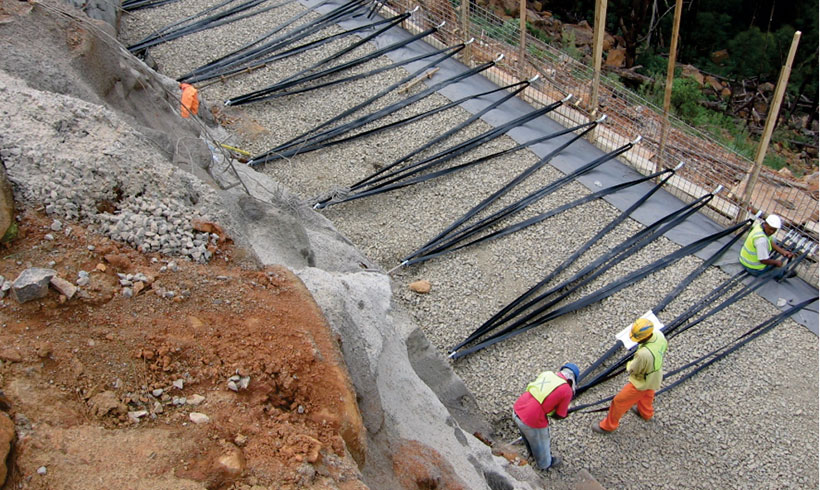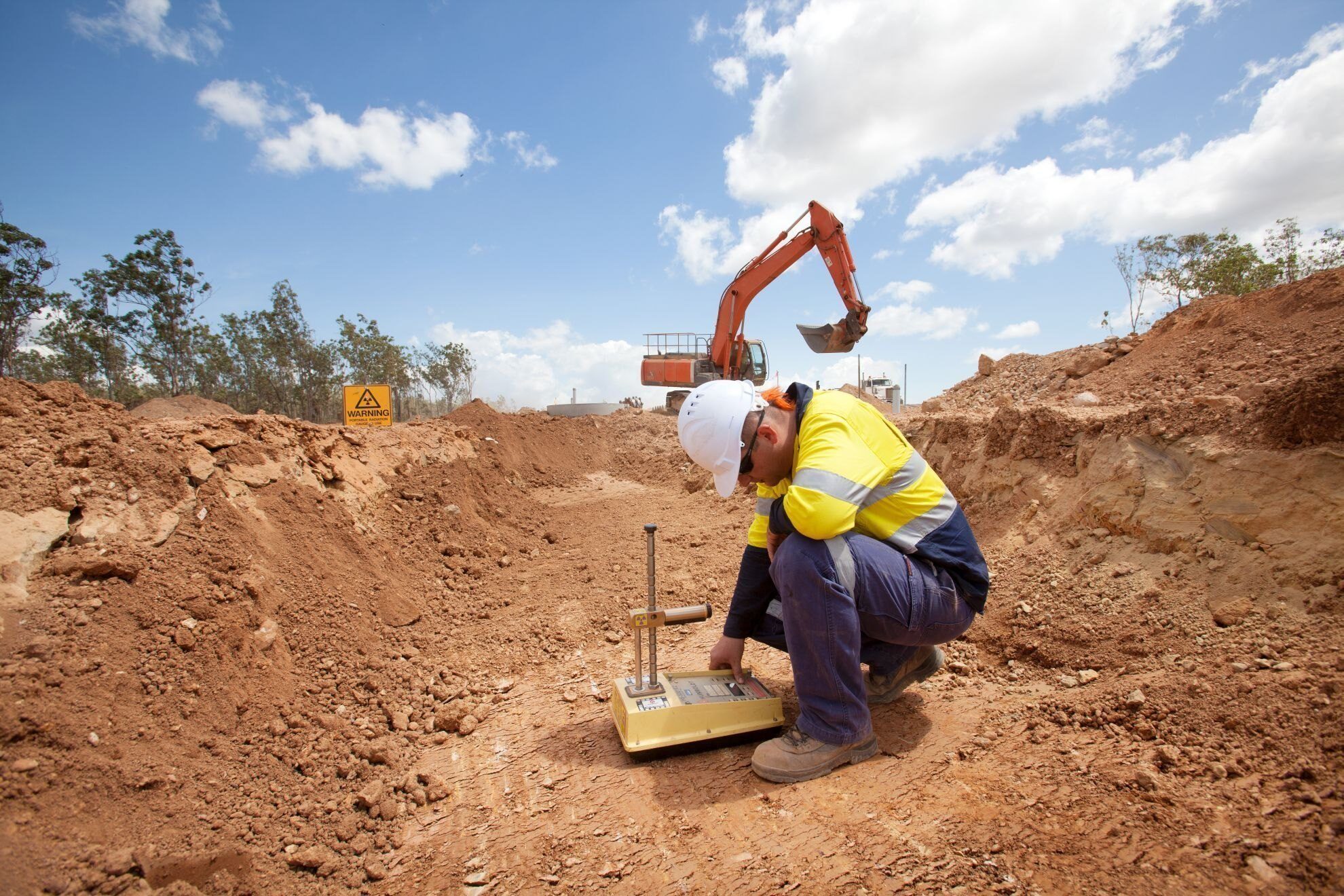The Facts About Geotechnical Engineering For Construction Projects Uncovered
The Facts About Geotechnical Engineering For Construction Projects Uncovered
Blog Article
Not known Factual Statements About Geotechnical Engineering For Construction Projects
Table of ContentsLittle Known Questions About Geotechnical Engineering For Construction Projects.Examine This Report on Geotechnical Engineering For Construction ProjectsUnknown Facts About Geotechnical Engineering For Construction ProjectsThe 4-Minute Rule for Geotechnical Engineering For Construction ProjectsThe Definitive Guide to Geotechnical Engineering For Construction Projects
Consequently, throughout the investigation, it is vital to drill at the needed depth and the called for number of holes as per the suggestion of the Canadian Structure Design standard. Often, the proprietor could conserve some Geotechnical Examination price but end up spending greater than the expected throughout the construction expense.The duties of the geotechnical consultant involve offering material screening for building and construction assistance. Geotechnical Engineering for Construction Projects. Geotechnical designers evaluate all the area examination reports to make certain that construction is going on as per the project spec. During building, a confirmatory test for dirt compaction is done on-site to make sure that no future settlement happens
After the concrete is put -7 days and 28 days- examinations are performed on concrete examples gathered from the site to guarantee that the concrete poured meets the layout requirement. Asphalt core is taken after the Asphalt is laid and compacted to validate that it satisfies the design standard. All research laboratory test reports are evaluated by the Geotechnical Designer to make sure that it fulfills the job spec.
Fascination About Geotechnical Engineering For Construction Projects

Geotechnical design plays an essential duty in making certain the security of building jobs. Learn exactly how it affects style and total task success. Geotechnical engineering is an important branch of civil design that focuses on recognizing the behavior of planet materials, such as dirt and rock. It includes evaluating subsurface conditions to ensure that a structure's foundation or facilities is steady and safe.

For a reputable structure and a smooth construction procedure, count on to supply the expertise you require. Call to get professional recommendations and geotechnical services customized to your following task.
Geotechnical Engineering For Construction Projects - Truths
When starting a land growth job, recognizing the ground beneath your feet is as important as the structures you intend to construct over it. Our Geotechnical Engineering group analyse the ground, ensuring it appropriates for the suggested advancement while giving you with the details called for to fulfill your task objectives.
Geotechnical Engineering looks at the development of the ground, as it is the foundation for all jobs. Where frameworks require to be made with regard to the ground problems; ground problems (e.g., soft ground) may require reinforcing depending on the dimension of the designated structure. Before building, you require to learn Get More Info about the groundwater, soil structure, and liquefaction possibility of your land.
For sites that are not attached on the regional authority facilities additional site investigations would be called for to give technical inputs for on-site stormwater and wastewater. We have experienced Geotechnical Designers based in each office, sustaining your geotechnical demands across the country. Reach out to us to talk about exactly how we can support your following project.
These records are tailored to fulfill the certain demands of a project and consist of design specifications and recommendations for the building and construction of a variety of synthetic structures. As offering consultancy services covering locations such as incline stability and load-bearing capacities for different materials, these designers undertake study and growth activities to improve techniques, tools, materials expertise and analysis covering entire lifecycles.
The smart Trick of Geotechnical Engineering For Construction Projects That Nobody is Talking About

However, rates of pay typically increase as your knowledge and abilities grow, with standards pointing to a graduate beginning income of in between 18,000 and 28,000 per year in the UK. This rises to 26,000 to 36,000 with a few years of experience and after that getting to 40,000 to 60,000+ for elderly, legal or master designers.
Nevertheless, with the right application it is feasible to grasp the career and gain access to a challenging yet gratifying and important profession. A rock hound would certainly need to re-train to come to be a geotechnical engineer, although there is lots of cross-over between both careers, which could make this simpler - Geotechnical Engineering for Construction Projects. Rock hounds need to have an understanding of dirts, rocks and various other materials from a scientific viewpoint, while geotechnical designers story their understanding of matters such as soil and rock mechanic, geophysics and hydrology and use them to design and ecological jobs
When starting, these designers will tend to service less intricate jobs, developing knowledge and experience prepared for even more challenging job review later. Geotechnical engineers have a tendency to specialise in certain areas as they grow in experience, concentrating on specific infrastructures such as railways, roads or water. These designers also deal with eco-friendly power, offshore and onshore oil and gas, nuclear power, and much more.
Fascination About Geotechnical Engineering For Construction Projects
The moment required to become a geotechnical engineer depends upon where you are based, where you research and what degree of education you want to achieve before going into the work environment. For example, are you going to explore an apprenticeship, take a college level or deal with towards a Master's or PhD? Generally-speaking it takes 3-4 years to get to the standard needs to begin a job as a geotechnical engineer.
These procedures enable professionals to assess a host of dirt mechanics including weight, porosity, void-to-solid fragment ratio, permeability, compressibility, maximum shear strength, birthing capability and contortions. If the structure requires a deep foundation, engineers will utilize a cone penetration test to approximate the amount of skin and end bearing resistance in the subsurface.
When evaluating a slope's equilibrium of shear stress and anxiety and shear stamina, or its capability to stand up to and undergo activity, rotational slides and translational slides are frequently thought about. Rotational slides fail along a curved surface area, with translational slides happening on a planar surface. A specialist's goal is to identify the conditions at which an incline failure might occur.
Frequently, searchings for suggest that a website's dirt need to be dealt with to improve its shear stamina, tightness and leaks in the structure before design and construction. When it comes time to web outline structure strategies, specialists are progressively focused on sustainability, even more specifically exactly how to reduce a foundation's carbon impact. One technique has been to replace 20 percent of a structure's cement with fly ash, a waste product from coal fire nuclear power plant.
Report this page